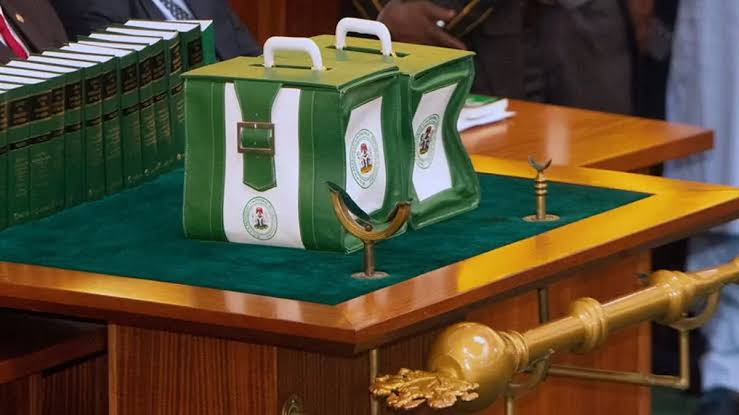Business
Ghana Raises Key Interest Rate

ACCRA — The West African nation of Ghana raised interest rates on Thursday on top of tough new foreign-exchange controls, the latest emerging market economy to take swift action to check inflation and a sliding currency as investors sour on their assets.
The Bank of Ghana raised its key interest rate 200 basis points to 18% at a meeting held two weeks ahead of schedule because officials said they couldn’t wait to aid an ailing economy.
“Recent developments in emerging markets have raised concerns about contagion risks,” central bank Governor Henry Wampah told reporters Thursday in the capital, Accra.
 Mr. Wampah also said new foreign-exchange controls imposed Wednesday were necessary to prop up the country’s battered currency, the cedi.
Mr. Wampah also said new foreign-exchange controls imposed Wednesday were necessary to prop up the country’s battered currency, the cedi.
The measures include a ban on transfers between bank accounts denominated in foreign currencies and a mandate that export proceeds be converted to the local currency within five days.
“The main purpose of the regulations is to ensure that we continue to use the cedi as the legal tender,” Mr. Wampah said.
Ghana’s troubles predate the recent turmoil that has sapped capital from major emerging markets including Argentina, South Africa and Turkey.
Tepid exports and skyrocketing public wages pushed Ghana’s budget deficit to 10.2% of gross domestic product in 2013. The cedi has dropped 30% against the U.S. dollar in the past year, and traded at a record-low of 2.49 to the dollar on Thursday.
The inflation rate is 13.5%, nearly a four-year high. Go into restaurants and menus show outdated prices scratched out in pen, then scratched out again.
“It’s become a spiraling issue,” said Sydney Casely-Hayford, a consultant to the finance ministry.
Now, the global rush out of emerging markets is exacerbating Ghana’s troubles.
“Ghana’s currency has been very weak for years, and it was one of the most-hit this year by global turmoil,” said Stephen Charangwa, a portfolio manager at Silk Invest, a frontier-market investment firm. “The introduction of capital controls is the next step in the central bank’s efforts to stem the slide.”
Several emerging-market central banks have raised interest rates recently to fight inflation and make their currencies more attractive. India unexpectedly raised its main rate by 25 basis points last week. Turkey followed with a forceful 2.5 percentage point hike, followed by South Africa with a 50-basis point rise.
Economic growth in Ghana and most of Africa remains stronger than in those countries. The International Monetary Fund is forecasting a 6.1% expansion in Ghana and across sub-Saharan Africa this year.
And outside South Africa, currencies and international bonds in most countries on the continent are too thinly traded to move in step with larger emerging markets, economists say.
Ghana’s 10-year international bonds are currently yielding at about 8.9%, a slight move from the 8% yield it offered when issued in July last summer. Yields on Nigeria’s dollar-denominated debt are stable, due to the country’s strong growth outlook and healthy foreign exchange reserves. Kenya is planning to issue up to $2 billion in international bonds for the first time later this month.
Still, Ghana’s new capital controls and rate hike suggest that policy makers in relatively strong African economies may also be obliged to raise interest rates to hold investors’ interest in their currencies.
“Kenya and Nigeria could also raise rates earlier than expected if the market turbulence turns into a rout,” said Shilan Shah, an Africa economist at Capital Economics.
– WALLSTREET JOURNAL
Business
CSR: 170 Graduates Benefit From Shell, Partners’ Internship

A total of 170 young graduates have benefitted from the NCDMB/PETAN/SPDC JV Graduate Internship programme, in which they were attached to indigenous technical oilfield service companies in the upstream and downstream sectors for hands-on experience.
Biztellers reports that some 133 of the interns have been employed by the companies indicating the success of the programme as a talent pipeline for the oil and gas industry in Nigeria.
The latest batch of 49 intake graduated at a ceremony in Port Harcourt early this month after completing their internship which began in 2022.
ALSO READ: Adeleke Presents Staff Of Office To New Owan Obokun, Oba Haastrup
Speaking at the ceremony, Chairman of the Petroleum Technology Association of Nigeria (PETAN), Wole Ogunsanya, commended the Shell Petroleum Development Company of Nigeria Ltd (SPDC) Joint Venture for the support for the programme which it is helping to build local manpower for a critical sector of the economy.
SPDC and PETAN had jointly set up the programme in 2014 whereby young graduates are attached to the over 100 member companies of the organisation with SPDC paying them monthly stipends. From 2022 when the Nigerian Content Development and Monitoring Board (NCDMB) joined the collaboration, the programme has run for two years with 100 intakes.
The NCDMB/PETAN/SPDC JV Graduate Internship programme has been lauded as a key human capital development initiative which is central to the promotion of Nigerian content in the oil and gas industry.
SPDC’s General Manager Nigerian Content, ‘Lanre Olawuyi, said, “The internship is more than a learning opportunity. It provides fresh graduates with technical expertise, equipping them with the practical skills needed to excel in their careers. It aligns with SPDC’s broader educational initiatives, contributing significantly to the actualisation of the UNESCO ‘Education for All’ agenda and the Sustainable Development Goals in Nigeria, particularly in the Niger Delta.
“We owe the success of the programme to the untiring support of our JV partners, the Nigerian National Petroleum Company Limited (NNPC,) TotalEnergies and Nigerian Agip Oil Company Limited for which we’re grateful.”
Business
Access HoldCo Commends NGX Invest Over N351bn Capital Raise
The Chairman, Access Holding Company Plc, Aigboje Aig-Imuokhuede, has commended the digital innovation efforts of the Nigerian Exchange Group (NGX) following the successful N351bn Rights Issue completed to comply with the regulatory directive of the Central Bank of Nigeria (CBN).
According to a statement from Access HoldCo, Aigboje Aig-Imuokhuede said, “By leveraging the NGX’s E-offering platform – NGX Invest, the Company provided its shareholders with a seamless, efficient, and convenient subscriber experience significantly reducing barriers and democratizing participation in the Rights Issue.”
ALSO READ: Adeleke Commiserates With AbdulRazaq On CoS’ Demise
In an article published by the World Federation of Exchanges, the Group Managing Director/Chief Executive Officer, Nigerian Exchange Group Plc, Temi Popoola had emphasised that the platform was at the core of NGX Group’s digital strategy, stating that it was designed to streamline the distribution of securities in the Nigerian capital market.
“Its user-friendly interface allows investors to onboard seamlessly and verify their identities through the Nigeria Inter-Bank Settlement System (NIBSS), using their Bank Verification Number (BVN). With NGX Invest, the traditionally complex and time-consuming process of investing is reduced to a few clicks, making it easier for investors across Nigeria, including those in underserved areas, to participate in the capital market,” he said.
The success of Access HoldCo’s capital raise, making it the first bank to officially comply with the CBN’s Banking Recapitalisation directive, is a key social proof and testament to the robustness of NGX Invest and demonstrates the potential of NGX Group’s platform to support the growth and business goals of its Issuers.
Business
2025: Nigerian States Fail To Achieve 60% Budget Execution In 2024

A recent review of budget performance across Nigerian states has revealed that none managed to exceed a 60% execution rate between January and September 2024.
The underwhelming performance raises concerns about the states’ readiness to handle the ambitious budgets they have planned for the 2025 fiscal year.
From Katsina to Akwa Ibom, states struggled to meet their budget targets, with execution rates ranging from 26.9% to 55.1%.
The review highlights inefficiencies in fiscal planning, low internal revenue generation, and a reliance on federal allocations and borrowing.
READ ALSO: Archbishop Martins Champions Clamour For Better Life For Nigerians
Katsina State: Allocated N481.7 billion for 2024 but spent just N216.4 billion, representing 44.9% budget performance.
The state recorded an internally generated revenue (IGR) of N29.9 billion.
Jigawa State: With a budget of N383.5 billion, the state spent N174.8 billion (45.6%) and generated N18.4 billion internally.
Niger State: Budget execution stood at 30.4%, with N252.2 billion spent out of N829.4 billion. IGR was N29.2 billion, representing just 3.5% of the budget.
Abia State: Achieved 30.3% performance, spending N171.8 billion of its N567.2 billion budget, with IGR at N22.1 billion.
Anambra State: Spent N132.5 billion out of N410.3 billion (32.3%) and generated N28.2 billion internally.
Ondo State: Executed 52.3% of its N395.2 billion budget, spending N206.6 billion, with IGR at N24.4 billion.
Oyo State: Spent N210.9 billion out of N438.4 billion (48.1%), recording the highest IGR among reviewed states at N45.7 billion.
Bauchi State: Achieved 51.4% budget performance, spending N202.9 billion of its N394.8 billion allocation, while generating N15.9 billion internally.
Zamfara State: Executed 34.2% of its N426.5 billion budget, spending N145.8 billion, with IGR at N18.4 billion.
Adamawa State: Spent N154.8 billion out of N281.1 billion (55.1%) but generated only N9.1 billion internally.
Akwa Ibom: Recorded the lowest budget performance at 26.9%, spending N228.7 billion of its N849.9 billion budget. IGR stood at N41.4 billion.
Niger State’s fiscal performance stands out as a worrying case. Despite budgeting N829.4 billion for 2024, the state spent only N252.2 billion, relying heavily on federal allocations (N182 billion) and loans (N79 billion, covering 31.3% of expenditures). The state generated just N29.2 billion internally.
As Niger State plans to increase its budget to N1.5 trillion in 2025—a 48.3% rise from 2024—questions are being raised about its ability to finance such a massive appropriation.
Governor Mohammed Umaru Bago recently defended the state’s financial approach, claiming a 68.88% budget performance for 2024.
However, analysts have pointed out discrepancies in the state’s fiscal records.
“The numbers don’t add up,” said one analyst. “If Niger State relied on internally generated revenue alone, it would have achieved only 3.5% of its 2024 budget. The reliance on loans and federal allocations is unsustainable.”
The state’s fiscal challenges are not new. In 2023, Niger budgeted N473 billion but spent only N190.9 billion (40.3%).
It generated N18 billion internally, received N92.6 billion from the federation account, and borrowed N90 billion to bridge the gap.
The inability of states to execute their 2024 budgets effectively has raised doubts about their capacity to manage even larger budgets in 2025.
Fiscal experts are calling for a reassessment of budget planning and implementation processes to avoid deepening financial crises.
“There’s an urgent need for states to improve revenue generation and reduce dependence on loans,” said another expert. “Without these measures, achieving fiscal sustainability will remain a mirage.”













